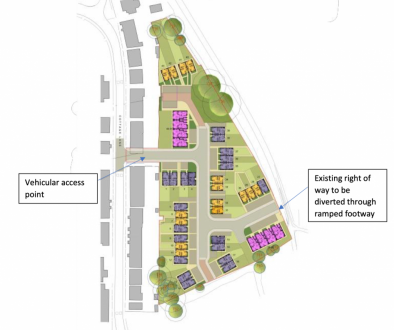Census 2021
Today is Census 2021 day! This essential national survey occurs once every ten years, with the last occurring in 2011. It acts as a survey that charts all people and households in England, Wales and Northern Ireland.
The survey aims to provide a snapshot of life that organisations from local authorities to charities and Government use. The information helps provide the services we all need, including transport, education, and healthcare. Without the Census, it would be much more difficult to do this.
What does the Census ask?
The information collected during the Census allows the creation of an in-depth picture of our society. It also helps to identify significant trends that will help the Government to plan services and allocate funding.
The Census does this by asking questions on a range of topics, including information about:
• individuals, such as their name, age, sex and marital status
• households, such as family relationships
• the homes we live in, such as their location, number of occupants and what facilities they have
• education, employment including where are how you get there
The Census asks questions about you, your home and the people who live in it. They keep the personal information you give us in the Census safe and confidential by law for 100 years.
The ONS (the Government body that runs the Census) only ever publishes anonymous statistics from the Census.
As an example, here are some of the ways local Council’s use the information from the Census:
Planning and development Planners use census information to develop local plans that reflect future needs. It also informs funding bids by identifying inequalities at a local level.
Public health and social care Local authorities use census information to understand service demand, identify pockets of health deprivation and support future care planning.
Education Pupil forecasting models use census information to inform capital bids and to monitor the supply of qualified people.
Transport Census information supports funding bids for road improvements and informs planning and profiles around public transport changes.
Housing Census information helps to measure housing affordability and assess local housing needs.
Other Local Authorities use census information to inform emergency services, library services, and waste collection and disposal.
Do I have to complete the Census?
By law, you must complete or be accounted for in the Census.
If you fail to complete the Census, it can result in a fine of up to £1,000.
If you fail to complete your form, Census field officers may visit your household in late March and early April.
They will encourage you to complete it and show you how to get further help if needed, and they will be wearing PPE and will not need to enter your home.
How do I complete a census form in 2021?
This year, because of Covid restrictions, people are being asked to fill the Census out online using an access code sent in the post.
You can complete your Census survey on a computer, mobile phone and tablet.
The survey should be submitted by today or as soon as possible afterwards.
The Census should take about 10 minutes for the household questions and 10 minutes per person.
The Office for National Statistics is expecting 75 per cent of people to fill it out online. However, those wishing to complete the phone via a paper version can request one online or over the phone.
What if I cannot fill in my census questionnaire online or I’ve lost my code?
The Census organisers know some people will find this challenging. That’s why they are here to help with a wide range of support services. They will make it easy for you, whatever your needs.
Services include:
• guidance and support in many languages and formats
• help over the phone, in a webchat or on social media
• a paper version of the questionnaire, if you prefer
• accessible census guidance, for example, in braille
For more information, go to https://census.gov.uk/help, check the Census Facebook page or phone free on 0800 141 2021



